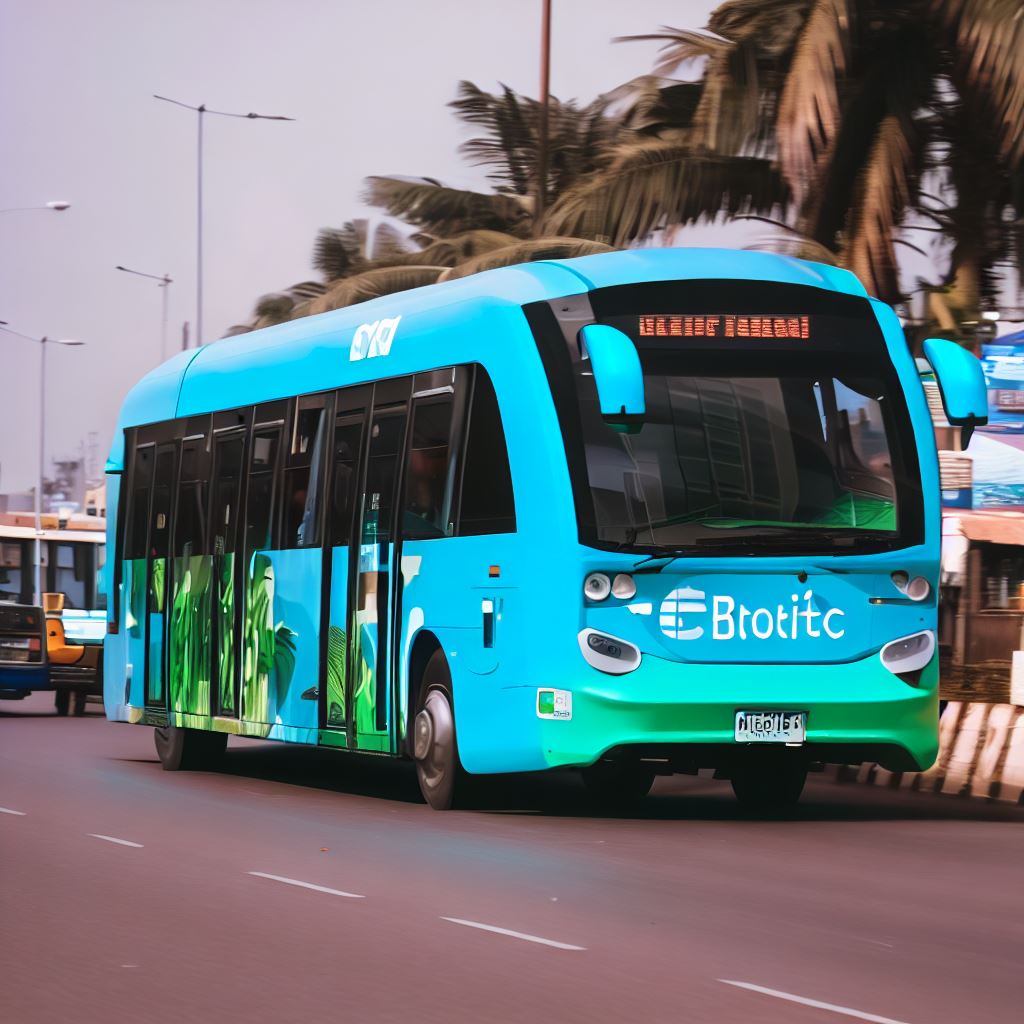Introduction
In a world where sustainability has become a clarion call, eco-friendly bus travel is rapidly emerging as a transformative trend in Nigeria.
As the nation seeks to align with the global movement towards greener transportation solutions, the spotlight is shining brightly on sustainable bus travel.
Brief overview of the topic
Eco-friendly bus travel, an integral part of the broader sustainable transportation landscape, is taking root across Nigeria.
This movement transcends borders, reflecting a worldwide surge in environmental consciousness.
With climate change concerns intensifying, people from all corners of the globe are increasingly gravitating towards eco-friendly travel options.
Mention of the growing interest in eco-friendly travel worldwide
In Nigeria, the wheels of change are in motion.
As the country grapples with urbanization and its associated challenges, the adoption of eco-friendly bus travel presents a promising solution.
The proliferation of eco-conscious commuters and environmentally responsible initiatives is evidence of Nigeria’s commitment to a sustainable future.
Stay tuned as we delve deeper into the world of Eco-Friendly Bus Travel, exploring its benefits, challenges, and the exciting innovations driving this transformative trend in Nigeria.
Together, we can pave the way towards a greener and more eco-conscious future.
Current state of transportation in Nigeria
In Nigeria, the transportation landscape has long been dominated by petrol-powered vehicles, casting a shadow of concern over air pollution and its environmental ramifications.
However, a glimmer of hope shines through the smog-laden skies as a pressing need for sustainable transportation options gains momentum.
The unmistakable prevalence of fossil-fueled cars and motorcycles on Nigerian roads perpetuates air pollution, jeopardizing public health and exacerbating climate change.
Yet, the issue doesn’t stop at tailpipes; it extends to the production and disposal of these vehicles, causing habitat destruction and waste management woes.
Enter the hero of the story: Eco-friendly buses. Powered by renewable energy sources like solar and wind, these green machines offer a beacon of light amidst the pollution haze.
They not only reduce air pollution and carbon emissions but also enhance city air quality.
However, this transition necessitates substantial investments and infrastructural upgrades.
To spur adoption, the government could sweeten the deal with incentives for bus operators, while public awareness campaigns educate the masses on the virtues of eco-friendly bus travel.
In review, the road to a greener Nigeria is paved with eco-friendly buses. With visionary policies and public support, we can steer towards a sustainable, pollution-free future.
Rise of Eco-Friendly Bus Travel
In Nigeria, Eco-Friendly Bus Travel is experiencing a remarkable surge in popularity as more individuals recognize the urgency of minimizing their carbon footprint.
This transformative shift can be chiefly attributed to the introduction of electric and hybrid buses into the country’s transportation network.
Electric and hybrid buses represent a pivotal advancement for Nigeria’s transport sector.
They operate on electricity, emitting zero harmful emissions—a stark contrast to conventional diesel buses.
This environmentally-conscious choice significantly curbs carbon emissions, a major contributor to air pollution and climate change.
Beyond their environmental merits, eco-friendly buses offer tangible advantages.
They substantially reduce operating expenses due to lower maintenance and fuel costs, relying on the more cost-effective and sustainable power source of electricity.
Moreover, these buses produce significantly less noise, greatly benefiting urban areas plagued by noise pollution.
Most importantly, eco-friendly buses promote public health by reducing exposure to harmful pollutants emitted by traditional diesel buses.
This shift contributes to cleaner air, lowering the incidence of respiratory diseases and other health issues linked to air pollution.
All in all, the rise of Eco-Friendly Bus Travel in Nigeria, driven by the introduction of electric and hybrid buses, signifies a sustainable transportation revolution.
With benefits ranging from reduced carbon emissions and operating costs to noise reduction and improved public health, these eco-friendly options are enhancing both our environment and quality of life.
Read: Finding Sound Engineering Jobs in Nigeria
Challenges to implementing eco-friendly bus travel in Nigeria
Challenges to implementing eco-friendly bus travel in Nigeria include limited infrastructure and charging stations.
The high initial investment costs pose another obstacle.
Additionally, public perception and awareness, as well as government policies and incentives, can hinder progress.
1. Limited infrastructure and charging stations
The lack of proper infrastructure and charging stations for eco-friendly buses is a significant challenge.
Without adequate charging facilities, it becomes challenging to operate and maintain these buses effectively.
2. High initial investment costs
One of the biggest hurdles in implementing eco-friendly bus travel in Nigeria is the high initial investment costs.
Electric buses and other eco-friendly alternatives tend to be more expensive than traditional ones. This cost barrier can deter operators from making the switch.
3. Public perception and awareness
Another challenge lies in the public’s perception and awareness of eco-friendly bus travel.
Many Nigerians may not be familiar with the benefits of these buses or may still hold reservations about their reliability and performance.
Education and awareness campaigns are necessary to overcome these perceptions.
4. Government policies and incentives
Government policies and incentives play a crucial role in promoting and supporting eco-friendly bus travel. However, inconsistent policies or a lack of incentives can hinder progress.
The government needs to provide clear guidelines, regulations, and financial incentives to encourage the adoption of eco-friendly buses.
To overcome these challenges and successfully implement eco-friendly bus travel in Nigeria, several strategies can be employed:
1. Investment in infrastructure
Efforts should be made to develop a robust charging infrastructure network throughout the country.
This would ensure that eco-friendly buses can operate efficiently and continuously without the fear of running out of power.
Collaborations with private and public entities can help establish charging stations at strategic locations.
2. Financial assistance and subsidies:
To address the high initial investment costs, the government can offer financial assistance and subsidies to operators.
Lowering the cost of purchasing eco-friendly buses would encourage more operators to make the switch, ultimately boosting the adoption rate.
3. Public awareness campaigns
Public perception plays a significant role in the success of eco-friendly bus travel.
Comprehensive awareness campaigns should be initiated to educate the public about the benefits of these buses, such as reduced emissions and improved air quality.
Demonstrations and testimonials can help dispel any doubts or misconceptions.
4. Government support and incentives
The government should formulate and implement favorable policies and incentives to promote eco-friendly bus travel.
These could include tax incentives, exemptions, and other forms of financial support that encourage operators to invest in eco-friendly alternatives.
In fact, while there are challenges to implementing eco-friendly bus travel in Nigeria, such as limited infrastructure, high initial investment costs, public perception, and government policies, there are also potential solutions.
By investing in infrastructure, offering financial assistance, conducting public awareness campaigns, and providing government support and incentives, Nigeria can embrace eco-friendly bus travel as a new trend, benefiting both the environment and its citizens.
Read: Gender in Sound Engineering: Nigeria’s Perspective

Successful examples of eco-friendly bus travel in Nigeria
Lagos Bus Rapid Transit (BRT) system
The BRT system in Lagos is a successful example of eco-friendly bus travel in Nigeria.
The BRT system was introduced in 2008 and has been significantly reducing traffic congestion in Lagos.
It operates on dedicated bus lanes, ensuring a more efficient and faster travel experience.
The BRT buses run on compressed natural gas (CNG), which reduces harmful emissions and improves air quality.
The BRT system has positively impacted traffic congestion and air quality in Lagos.
Overview of the BRT system
The BRT system in Lagos consists of a network of bus routes covering different parts of the city.
The bus stops are well-designed and equipped with modern facilities for passenger comfort.
The buses are spacious, clean, and well-maintained, providing a pleasant travel experience for passengers.
The BRT system operates on a reliable schedule, ensuring timely arrivals and departures.
Positive impact on traffic congestion and air quality
The BRT system has played a vital role in alleviating traffic congestion in Lagos.
By offering a reliable and efficient mode of public transportation, it has reduced the number of private vehicles on the roads.
This, in turn, has significantly reduced traffic congestion and improved the overall flow of traffic in the city.
Moreover, the use of CNG as fuel for the buses has contributed to a decrease in air pollution, resulting in improved air quality.
Expansion plans
Due to its success, the Lagos BRT system is continuously expanding to cover more areas within the city.
There are plans to extend the existing bus routes and introduce new ones to reach underserved locations.
This expansion will further improve accessibility for residents and reduce their reliance on private vehicles.
Intercity eco-friendly bus services
Companies offering eco-friendly travel options
Several companies in Nigeria are providing intercity bus services that prioritize eco-friendly practices.
These companies have invested in modern fleets of buses equipped with advanced technology to reduce emissions.
They strive to offer a comfortable and environmentally conscious travel experience to passengers.
Routes and services provided
The intercity eco-friendly bus services connect major cities and towns across Nigeria.
They have established reliable routes and schedules, ensuring hassle-free travel for passengers.
These buses are equipped with amenities such as air conditioning, reclining seats, and onboard entertainment to enhance passenger comfort.
Customer satisfaction and feedback
Passengers who have availed intercity eco-friendly bus services in Nigeria have expressed high levels of satisfaction.
They appreciate the comfortable travel experience, punctuality, and eco-friendly initiatives adopted by these companies.
Positive feedback from customers further encourages these companies to continue their commitment to sustainable travel.
In short, eco-friendly bus travel is indeed a growing trend in Nigeria.
The success of the Lagos BRT system and the rise of intercity eco-friendly bus services demonstrate the positive impact of these initiatives.
By reducing traffic congestion and improving air quality, these eco-friendly travel options contribute to a more sustainable future for Nigeria’s transportation sector.
Read: Intercity Travel: Top 5 Bus Companies in Nigeria Rated
Publish Your Professional Profile, Business or Brand
Showcase your expertise, gain trust, and boost visibility instantly on Professions.ng.
Publish NowPotential for growth and future prospects
- Eco-friendly bus travel has the potential to grow rapidly in Nigeria.
- As awareness about environmental issues increases, more people are seeking sustainable transportation options.
- This creates an opportunity for the eco-friendly bus travel industry to expand and cater to a growing market.
- The demand for this mode of transportation is likely to continue increasing in the future.
- Investing in eco-friendly bus travel now can yield long-term benefits and profits.
Increasing demand for eco-friendly transportation
- Nigerians are becoming more conscious of their carbon footprint and are looking for greener transportation options.
- Eco-friendly bus travel provides a convenient and affordable alternative to traditional modes of transportation.
- Reducing air and noise pollution is a top priority for many individuals, communities, and organizations.
- Eco-friendly buses emit fewer greenhouse gases and have a smaller environmental impact compared to private vehicles and traditional buses.
- The increasing demand for eco-friendly transportation creates a viable market for eco-friendly bus travel in Nigeria.
Potential for investment and job creation:
- Investing in eco-friendly bus travel not only benefits the environment but also creates employment opportunities.
- Setting up eco-friendly bus services requires a workforce skilled in various aspects such as operations, maintenance, and customer service.
- New jobs can be created within the eco-friendly bus travel sector, stimulating economic growth and reducing unemployment.
- Investors have the potential to earn substantial returns on their investment in this emerging market.
- Local communities can benefit from job creation and increased economic activity.
Role of the government in promoting eco-friendly bus travel
- The government plays a crucial role in promoting and supporting eco-friendly bus travel initiatives.
- Policy measures such as tax incentives or subsidies can incentivize investments in eco-friendly transportation infrastructure.
- The government can also regulate the industry to ensure compliance with environmental standards and safety regulations.
- Collaboration between government agencies, transport authorities, and eco-friendly bus operators is essential for the success of this sector.
- The government can actively promote the benefits of eco-friendly bus travel through public awareness campaigns and education programs.
Collaboration with private sector and international organizations
- The private sector and international organizations can play a significant role in the development of eco-friendly bus travel in Nigeria.
- Private companies can invest in eco-friendly buses, infrastructure, and technology to support sustainable transportation initiatives.
- International organizations can provide funding, technical expertise, and knowledge-sharing platforms to facilitate the growth of eco-friendly bus travel.
- Collaborations with organizations experienced in eco-friendly transportation can help Nigerian operators access global best practices and innovations.
- Working together, the private sector and international organizations can help accelerate the adoption of eco-friendly bus travel in Nigeria.
In general, eco-friendly bus travel holds great potential for growth and future prospects in Nigeria.
The increasing demand for sustainable transportation, coupled with the role of the government in promoting and supporting this sector, creates an environment ripe for investment and job creation.
Collaboration with the private sector and international organizations further enhances the development of eco-friendly bus travel.
By embracing this trend, Nigeria can reduce its carbon footprint, improve air quality, and create a more sustainable future for its citizens.
Read: Sound Engineering in Nigeria’s Music Industry
Conclusion
Eco-friendly bus travel is a new trend in Nigeria that holds great importance.
By adopting this environmentally friendly mode of transportation, we can significantly reduce pollution and its negative effects on our health and the environment.
The key points discussed in this blog post include the emergence and benefits of eco-friendly bus travel in Nigeria and how it can contribute to a more sustainable future.
It is crucial for individuals and organizations to support and choose eco-friendly transportation options.
Together, we can make a positive impact on our surroundings and ensure a greener and cleaner Nigeria.
Let us embrace this change and pave the way for a sustainable and eco-friendly future.




